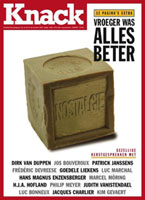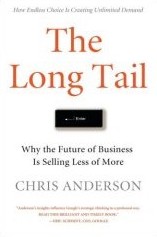 Last week's Knack featured a special on Nostalgia. In the past everything was better, and nowadays people are reaching back to the safe haven of the past is the hypothesis.
Last week's Knack featured a special on Nostalgia. In the past everything was better, and nowadays people are reaching back to the safe haven of the past is the hypothesis. Are we stepping into an era of a reviving past? I think this is highly questionable. A year ago think BBDO's trends study already indicated an uplift of nostalgia and melancholy.
Nostalgia and melancholy are expressions of temporarily hiding from the vital era we live in today. Contrary to what Knack seems to suggest, today's society is one with a firm belief in the future and a strong urge to explore the unknown. This is not a frightened society that grasps back to past for support. On the contrary, it's a society where people are not afraid to take a step outside and open up. Probably the most iconic example is YouTube and the whole Web 2.0, or Time Magazine's person of the year: You.












